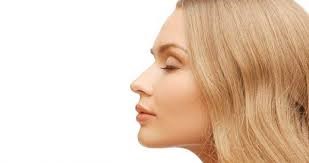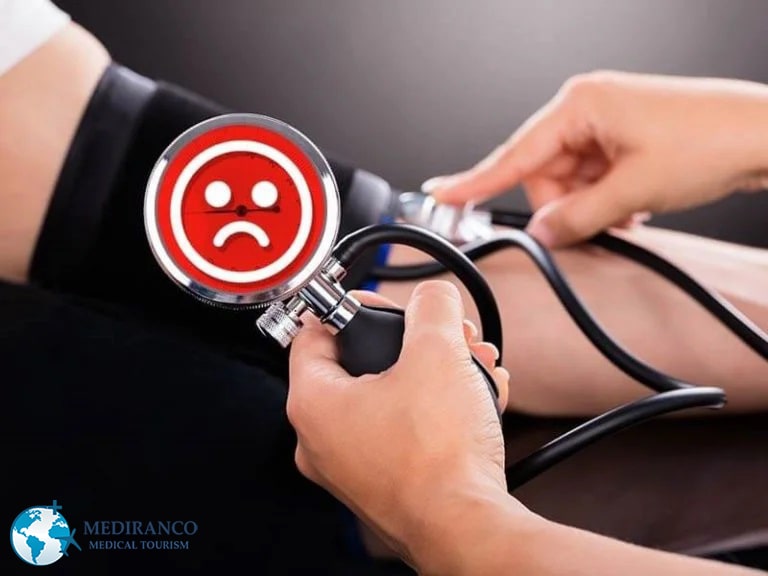Can you have caffeine after surgery ? Preparation for surgery is just as crucial as the procedure itself. You’ll need to mentally prepare for surgery, but you’ll also need to have your body in tip-top shape to withstand the physical impact of it. Keeping track of the foods and drinks we consume is one of the post-operative concerns.
Caffeine is one of the things that physicians advise against using after surgery. While some believe coffee can help avoid postoperative ileus, others assert that it raises blood pressure and slows wound healing. In this article, we will discuss the efficacy of drinking coffee after surgery.
ReadMore: Rhinoplasty in Iran (Mediranco)
Table of Contents
ToggleShould You Avoid Caffeine After Surgery?
A cup of Joe to start the day, green tea to calm the nerves, and a bottle of soda to quench your thirst–there are some of the caffeinated beverages that bring goodness to the soul, but how about before or after plastic surgery?

Caffeine Causes Dehydration after Surgery
Caffeinated drinks, such as coffee, tea, energy drinks, and sodas are natural diuretics, which means they increase urine flow, taking away fluid from the body, and increasing your risk for dehydration. Interestingly, this is why caffeine can even make you feel tired.
Drinking plenty of fluids after surgery is essential since it helps to increase nutrient absorption, gets back lost electrolytes and other nutrients from the body, and helps to bring back your body to its normal state.
When you lack fluids, the risks of complications, as well as slow recovery are increased. In addition, when you are dehydrated after surgery, it causes your skin and soft tissues to dry, and dry wounds do not heal properly, hindering your recovery process.

Caffeine Can Increase Blood Pressure
Caffeine increases vasoconstriction and increases blood pressure, which you do not want to happen after surgery.
Vasoconstriction is the narrowing of the blood vessels, which puts pressure on your blood circulation, and thus, causing high blood pressure. When you do have high blood pressure, you are more at risk for heart attack and stroke. As a result, it is best to avoid caffeine after surgery.

Caffeine makes Wound Healing slow
Right after surgery, you will want your wounds to heal as fast as they can so you can get back to your normal, healthy self once again.
However, drinking coffee and other caffeinated drinks post-surgery can hinder the healing of your cuts and stitches, prolonging your post-op recovery. If you want to enjoy the effects of your cosmetic procedures as soon as possible, avoiding caffeinated drinks a couple of weeks after surgery may help to do to this.
why caffeine does slows the fast wound healing? A study in 2014, which was published in the International Wound Journal, revealed how caffeine interferes with fast wound healing.
The researchers looked into the relationship of caffeine intake and the process called epithelialization – the process, which occurs when dermal cells in the skin spread over the surface of the wound to create a covering of new tissue.
The results revealed that the more caffeine you drink, the less epithelialization occurs in your skin. Therefore, the body’s wound healing process is impaired.

Can you have caffeine after surgery ?
Although coffee has been shown to be beneficial to health when consumed in moderation, what about a patient who has recently undergone surgery? Recent studies indicate that drinking a cup of coffee immediately after surgery may result in a speedier recovery period and happy patients.
Coffee is thought to help prevent postoperative ileus. Postoperative ileus is characterized as a simple ileus that develops following surgery and resolves spontaneously within two to three days. Abdominal distension, a lack of bowel noises, nausea, vomiting, stomach cramps, and a lack of flatus are all clinical manifestations.
Recent research has showed that coffee drinking improves gastrointestinal function without compromising postoperative morbidity. Additionally, postoperative coffee drinking stimulates the recovery of gastrointestinal function following tummy tuck.
Longer wakefulness before surgery increases discomfort and lengthens recovery time, according to a new preclinical study. Caffeine supplementation helped to mitigate the detrimental effects of sleep deprivation on future postoperative pain.
According to one study, caffeine users experienced fewer headaches the day of or the morning after surgery if they drank coffee. As a result, those given coffee the day after surgery had a greater chance of having their bowels move and returning home a day sooner than those given water.
Keep in mind that the use of caffeinated beverages and coffee after surgery is entirely dependent on the type of your procedure, and you should consult with your doctor about this. Following that, we will look at the various surgeries and the prohibition on consuming coffee and caffeine-containing drinks after them.

Can you have caffeine after rhinoplasty surgery ?
Drinking alcohol and caffeinated beverages, such as coffee or soda, should be avoided for at least a few days after your surgery. Because alcohol thins the blood, it increases the risk of post-surgery bleeding. Additionally, it raises your risk of developing hematomas, or collections of blood beneath the epidermis, and can exacerbate swelling.
Caffeine can cause an elevation in blood pressure, which can be dangerous for certain patients. Your surgeon will inform you whether he strongly advises against consuming coffee or another caffeinated beverage after rhinoplasty and how long you must abstain for.
Coffee after liposuction
For at least three days after surgery, it is recommended that you abstain from alcohol, tea, coffee, and fizzy beverages. Sports drinks, vegetable juices (V8), and other salty beverages are not permitted. A trace of salt will result in an increase in edema and swelling.
Water is essential for appropriate hydration during recuperation, so aim for at least six or eight glasses a day.
You must avoid three things to minimize your risk of dehydration after liposuction:
- Caffeinated beverages like coffee or tea can dehydrate the body.
- Alcohol depresses the body’s natural defense mechanisms, making it more susceptible to illness.
- Sodium can dehydrate body, so it is critical to have a low-sodium, well-balanced diet
Coffee after breast augmentation
Soon after your surgery, you can begin drinking coffee. According to specialists, if you can handle liquid after breast augmentation, you can resume coffee consumption.
Coffee after gastric sleeve
Caffeine consumption shortly after surgery is not suggested, as it may impair nutritional absorption, which is a critical component of any bariatric surgery and gastric bypass. Consuming or drinking anything that may impair your newly adjusted body’s ability to absorb nutrients is not a good idea.
Additionally, it can produce moderate dehydration, especially if consumed in significant volumes throughout the day, which can result in a variety of health complications if not well managed.
Coffee after tummy tuck
You may drink coffee after a tummy tuck, however it is recommended that you drink plenty of water, at least 8 to 10 glasses each day. It is critical to adhere to your surgeon’s recommendations, since he or she may have a customized post-operative plan for you, which include recommendations to avoid specific meals, supplements, and beverages prior to surgery.
When Can you have caffeine after surgery?
There is no standard answer to this, but it’s always best to consult your doctor. A good 3 weeks after surgery is a safe bet since your wounds will have properly begun healing by then, and your body will have begun to get back to its healthy normal state.
In terms of before surgery, a good couple of days before surgery should be the best time for you to stop drinking caffeinated drinks.
Since most people who drink coffee or tea on a daily basis may experience caffeine withdrawal in the form of headaches when they stop drinking all of a sudden, it’s best that you experience the headache two days before your surgery rather than on the day of your scheduled surgery.
When can I drink coffee after surgery?
Depending on your procedure, you may be able to drink coffee immediately after your surgery. However, a cold brew or iced coffee is preferable. Coffee and other hot liquids should be avoided for 24 to 48 hours following surgery. Heat has the potential to aggravate the healing site, preventing it from fully recuperating.
Avoid using the straw if you’re drinking iced coffee or cold brew. As previously stated, a straw has the potential to dislodge a blood clot, so delaying healing.

